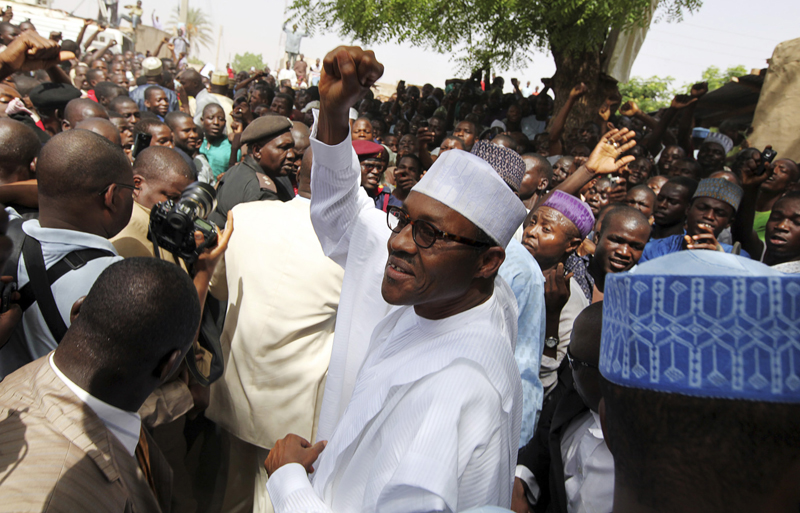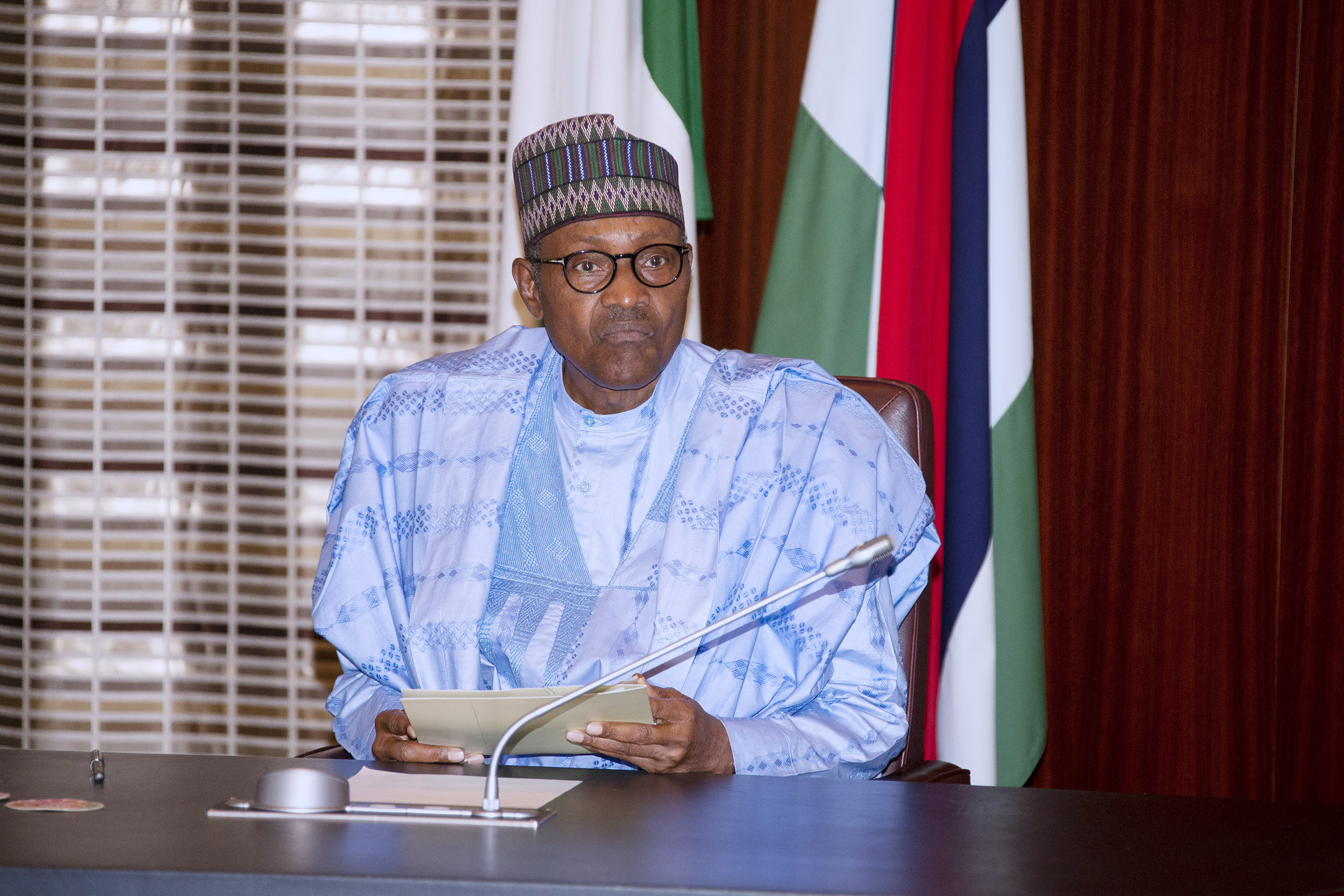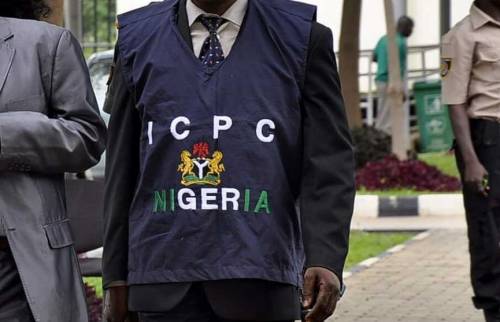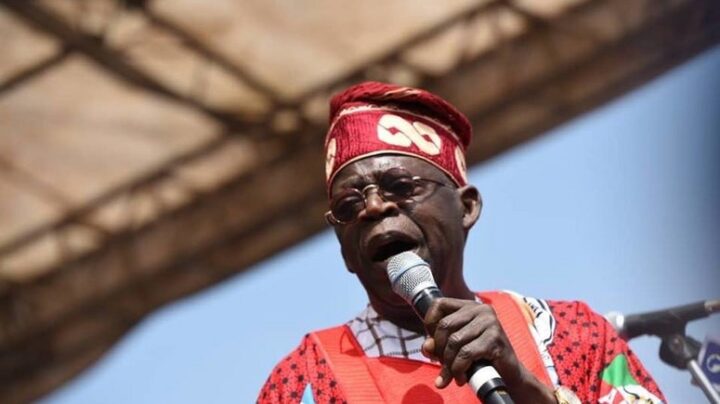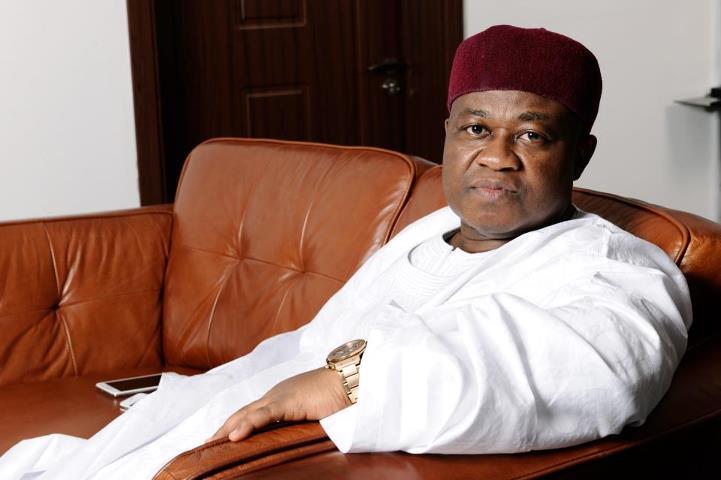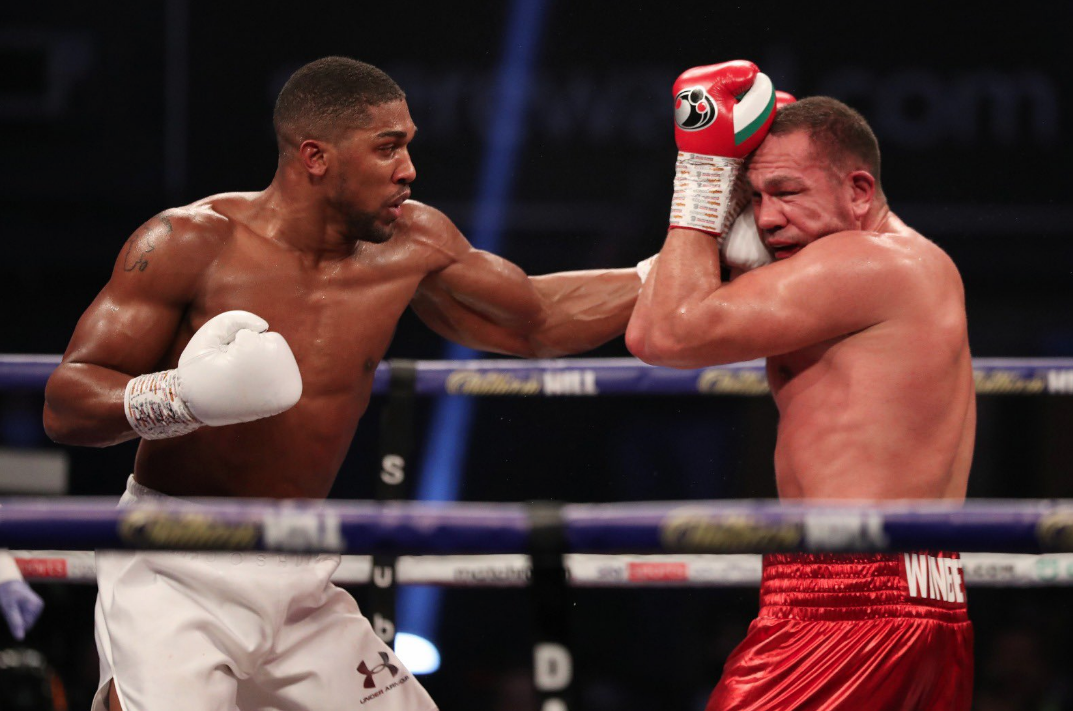Nigerian Congress for Progressive Change (CPC) presidential candidate, General Muhammadu Buhari, gestures to supporters as he arrives to cast his ballot at Daura, in Katsina state in northern Nigeria, on April 16, 2011. REUTERS/Afolabi Sotunde
*Editors: This photo may only be republished with RNS-NIGERIA-ELECTION, originally transmitted on March 24, 2015.
The oxygen of the political life of northern Nigeria in the scheme of Nigerian politics rests principally on control of political power at the centre. The foundation for this was laid with the establishment of the Sokoto caliphate which covered roughly two-thirds of northern Nigeria following the Jihad of Usman dan Fodio in 1804.
When the British came to establish colonial rule over northern Nigeria subsequently, they found in the existing system of administration under the Sokoto caliphate a ready-made template to suit their purpose. Handicapped by manpower from Britain to help administer this vast conquered territory and wary of exciting another revolt in the shape of the one that occurred in Sudan following the establishment of colonial rule in that country, the British instead opted to allow the caliphate remain to a large extent, but subsume it under British over lordship. This was the basis upon which the famous indirect rule in northern Nigeria was built.
Thus from 1903 when British rule was established in northern Nigeria to Independence in 1960, the British strove through various constitutional amendments and administrative restructuring to strengthen this mutually convenient template of rulership. It was mutually convenient because the native rulers of northern Nigeria under the emirate system were allowed to consolidate their hold on the native administrative system with the few British colonial officers exercising a supervisory control. As long as the Emirs recognised and pledged loyalty to the British monarchy as represented by the colonial officials present, and did not step out of prescribed guidelines set by the colonial officials, they were allowed to do what they pretty much liked with the subjects in their domain.
So successful was this template of relations between the British colonialists and the native rulers in the north that the British surreptitiously contrived to hand the native northern Nigerian rulers the political advantage in the scheme of politics in the northern region and Nigeria as a whole.
Advertisement
When some northern progressive professionals like Dr Russell Barau Dikko formed the Northern People’s Congress (NPC) to pursue a progressive course in northern politics, the British promptly discouraged that. When the likes of Saad Zungur tried to link up northern progressive elements with their southern counterparts to form a broad pan-Nigerian political front, the British clamped down on that too and ensured the move was scuttled.
But conversely, the same British who frowned at the rise of progressive politics in northern Nigeria however were not averse to conservative elements venturing into politics. Indeed they encouraged and in some cases coerced some of them to join. That was how by contrivance of the British the NPC which was formed by northern progressive elements was turned over to the conservative elements.
All this was done by the British in order to enable them influence the political economy of post-colonial Nigeria as their inevitable departure from Nigeria loomed.
Advertisement
At independence in 1960, the Frankenstein of northern political domination and control cooked from the laboratory of British colonial politics was sprung on Nigeria and has remained pretty much with us through all the various civilian and military governments we have had. In all the governments we have had, it was either a northerner was heading it or northerners were controlling it from the shadows according them something akin to a veto power on Nigerian politics.
By 2023, when President Buhari leaves office after his mandatory two terms in office, all that will change. By then the north would have cashed all the political cheques in its possession and going forward the time honoured northern dominance of Nigerian politics will slip into inevitable decline. Indeed several on-going developments in the north and across Nigeria clearly point to the eventual emergence of this reality.
Firstly, President Buhari’s ascendance to power on the back of a pan-Nigerian initiative owes this much to elements in the south, especially the southwest who worked to provide the necessary southern swing votes for him to win epochally in 2015 and to repeat same in his 2019 re-election. It is instructive that with all his overwhelming northern support on the three previous occasions he stood for presidential elections he could not get the necessary southern swing support to win.
In the run up to the next circle of elections in 2023, the southern elements in the ruling All Progressive Congress Party (APC) would feel morally and politically justified to expect that one of theirs be considered not just as presidential candidate of the party, but also to expect the reciprocal support and deciding votes of the north at the 2023 elections.
Advertisement
Secondly and perhaps more importantly, the north itself is politically weak and divided owing to deep social dislocations among the classes of people and on account of ethnic and religious factors. The once monolithic north which spoke and acted with one voice and resolve on national politics has been riven with the self-damaging politics of identity and exclusion.
There are sections of the north who feel with justification that identifying politically with the north has not yielded commensurate benefits or dividends for their efforts. Although these feeling have been there for long, it has noticeably gained greater traction under the Buhari administration which people from these sections of the north regard as catering only for the interests of Hausa-Fulani and Muslim north.
It should come as no surprise that these feelings are predominant among the Christian and minority areas of the north and they have made it clear that they will no longer support or go with the northern agenda in national politics henceforth.
If that were not enough troubles for the north, the situation in the so-called core northern areas of Hausa-Fulani Muslim north paints a more damaging picture of political and social dislocation. Although the north has been the common denominator of national politics for long in Nigeria, this has not translated in to positive socio-economic development of the region. In sharp contrast to the tiny northern elite who have benefitted enormously from northern control of power in Nigeria, is the vast army of desperately poor and downtrodden class of northerners whose conditions have changed very little from generations even with northern control political power in Nigeria over the years.
Advertisement
Today the whole north is convulsing with the incidence of insurgency, terrorism, banditry, kidnapping for ransom and sectarian crises of ethnic and religious hues. Studies have attributed these developments to the widening gap between the social classes in the north and the conclusion is that having left the situation to fester without far reaching social remediation measures, the scourge now at its relative infancy will eventually consume the north and the country.
Advertisement
08035355706 (sms only)
Advertisement
Views expressed by contributors are strictly personal and not of TheCable.
Add a comment

